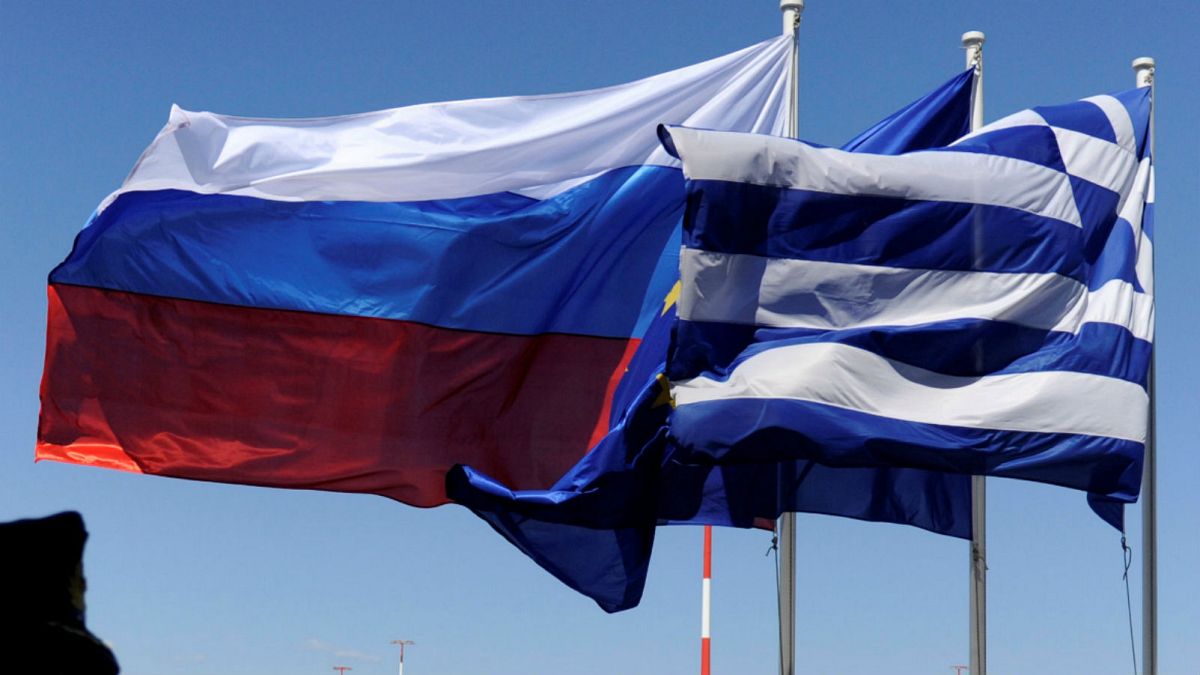Moscow is accused of trying to subvert the Balkan nation’s push to join NATO and the EU, amid a strategic tug-of-war.
Despite Donald Trump’s cosying up to Vladimir Putin in Helsinki, their two countries are at loggerheads concerning a recent diplomatic spat over the Former Yugoslav Republic of Macedonia (FYROM).
The United States has backed Greek claims that Russia has been interfering in its domestic affairs, by trying to foment opposition to its deal with its northern neighbour over the country’s name which brought an invitation to join NATO.
In a move described as unprecedented, Athens expelled two Russian diplomats for alleged meddling and barred two more from entering the country.
Moscow responded by accusing Washington and Western countries of being “behind the anti-Russian decision of the government of Greece”.
A controversial deal
The catalyst for recent events was last month's deal, struck between Greece and FYR Macedonia over the latter’s name, which sees the Balkan nation become the Republic of North Macedonia.
Athens has long argued that by using the name “Macedonia”, Skopje is laying claim to a northern Greek province of the same name.
The dispute has held up FYR Macedonia’s bids to join the European Union and NATO.
Under the agreed terms, Greece will lift all objections to the renamed nation joining the EU. The accord also resulted in a formal invitation from the North Atlantic alliance to begin accession talks.
However, the agreement brought violent protests in the capital Skopje. The deal needs the approval of the Greek parliament and a referendum in FYR Macedonia, so opponents see much to play for.
What is Russia accused of doing?
Speaking at the NATO summit, FYR Macedonia’s Prime Minister Zoran Zaev indicated he knew Russia was behind some of the protests. Athens has also pointed the finger at Moscow.
Russia has been accused of encouraging rallies to oppose the deal between the two countries. According to Greek media, diplomats sought to induce local officials to back street protests by offering bribes. Other reports also say they were active in trying to stir up cultural associations, far-right groups and Orthodox clerics.
The Greek newspaper Kathimerini has said the Imperial Orthodox Palestine Society is suspected of trying to expand Russian influence in Greece. However, the organisation — which promotes Russian ties to Christians — denied it had tried to bribe officials.
Other reports speak of a widespread campaign in FYR Macedonia involving Russian-Greek businessmen, alleging that hundreds of thousands of dollars have been paid to various groups to incite trouble in the run-up to the referendum.
What is at stake in the region?
Russia is involved in a wider struggle with the EU for influence across the Balkans, a strategically important region where it also has historic cultural ties.
FYR Macedonia’s government believes that joining NATO will help bring stability and economic growth to the country.
Moscow has accused NATO of bullying FYR Macedonia into seeking to join the alliance. “The sucking into NATO by force of Macedonia only confirms that the policy of ‘open doors’ has become an aim in itself and a tool to gain control of geopolitical territory,” Russia’s Foreign Ministry said in a statement last week.
In turn, Greek officials accused Russians of wanting to see the talks break down.
Where do Greek-Russian relations go from here?
Relations between the two countries have traditionally been close, with cultural and religious links dating back centuries. They have survived more than 65 years of Greece’s NATO membership.
Despite the latest diplomatic row, diplomats in Athens say Greece continues to seek good relations with Russia — highlighting the Skripal poisoning when Athens did not follow other Western countries in expelling Russian diplomats.
On Monday, Greece tried to calm the storm, saying it considered the matter to be “finished” and insisted that Russia remain a “significant partner for Greece”. However, it also adds that good ties depend on countries respecting each other’s sovereignty.
